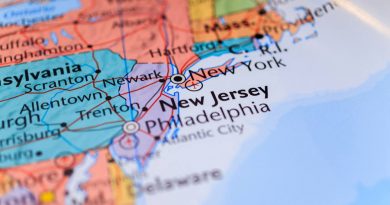Where Can I Buy Cannabis In California?
California is about to open one of the biggest legal recreational marijuana markets in the country on Jan. 1, making good on a referendum passed by voters in November 2016.
Cannabis In California
For those living or visiting The Golden State and wanting to purchase legal cannabis in California, it’s a good idea to familiarize yourself with the current laws and regulations. As things now stand, it’s a hodgepodge of different laws depending on where you live or are visiting.
Here’s a look at some of the issues.
Banned In Kern County
Under the law, any marijuana retailer must have a state license as well as a business license from local authorities. According to Lori Ajax, the state’s regulator for the marijuana industry, the licensing process has moved slowly across the state.
Different areas have approached the issue in different ways. For example, Kern County, which includes Bakersfield, has banned any commercial marijuana operations or sales. On the other hand, city leaders in Oakland, Santa Cruz and San Diego have all voted to allow recreational marijuana sales.
San Francisco is expected to begin allowing sales within the first couple of weeks in January. Los Angeles will begin accepting license applications in January, with sales expected to begin late in the month at the earliest.
No Public Use
Wherever you are, do not expect to have the option of using marijuana in public. You can’t. Cities have been given the option to allow marijuana use at dispensaries, but it’s important to check first before doing so. Don’t assume you can.
Supply Chain Issues
Even where it’s legal, you might have trouble finding cannabis in California. Ajax told the Los Angeles Times her chief worry about the regulated marijuana system is whether enough licenses will be in place to support the cannabis supply chain. Nevada ran into similar issues, running out of marijuana in many locations within the first few days of sales beginning in July 2017.
As with any retail business, enterprises need to be in place up and down the supply chain. That includes cultivators, testing facilities, transporters and retailers. Since licensing applications only started to be taken in December, Ajax said there are concerns about having every business up and running by January.
“That’s something I think about all the time,” Ajax said.
Enforcement and Education
Don’t expect a crackdown on those who don’t comply fully with the law. The state plans on using a carrot rather than a stick approach, at least initially.
Part of legalizing marijuana is attempting to bring people out of the black market. That requires education and patience, Ajax said. She did, however, add that law enforcement will focus on those who willfully violate the law.
Those trying to comply who are simply overwhelmed by the many rules and regulations governing marijuana use will need to be educated, not punished, she said.
In many ways, California will be a test case for the rest of the country. Legal adult-use sales have been up and running in Colorado, Oregon and Washington for years, now. California can take the lessons learned in those states and apply them, providing a framework for the vast majority of U.S. states that have not yet legalized recreational marijuana.
For the consumer, it’s just a matter of knowing the laws where you are and looking through regulations from the state’s Bureau of Cannabis Control.




